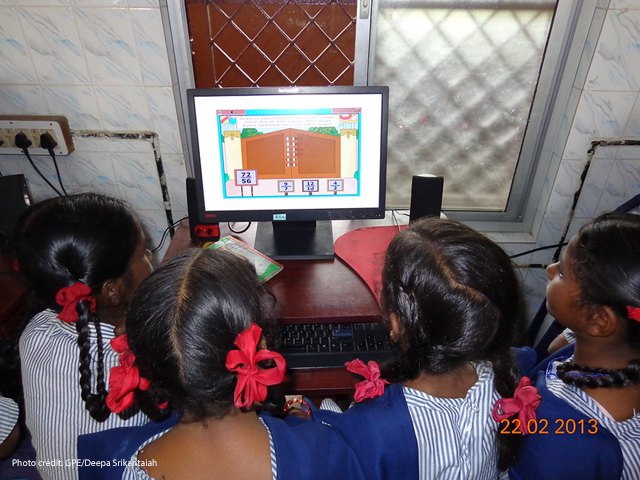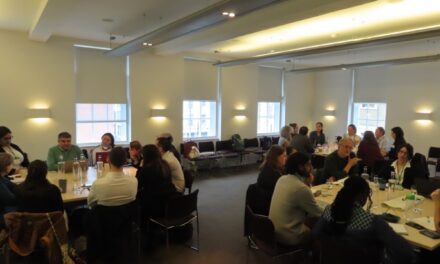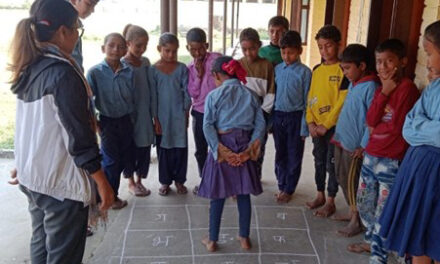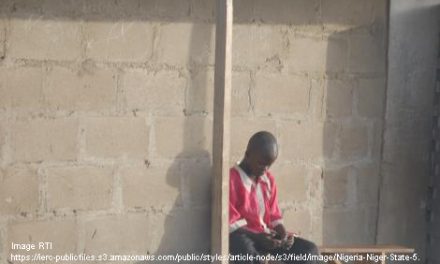This blog was written by Dr Akanksha Bapna, Senior Research Fellow, ODI and EdTech Hub.
Socioemotional Learning (SEL) encompasses a wide range of often unstructured skills, attitudes and competencies required by individuals to make informed decisions, solve problems, think critically and creatively, communicate effectively, build healthy relationships, empathise with others, and cope with and manage their lives in a healthy and productive manner. Building socioemotional competencies not only improves academic achievement and educational attainment, but has demonstrated strong correlations with personal satisfaction and growth, citizenship, and reduced risky behaviours like violence and drug use. Socioemotional competencies are a strong determinant of an individual’s future, and their capacity to lead a responsible and productive life in society.
The Covid-19 pandemic has led to a seismic shift in education – not only in its delivery but also its goals. Here we identify five opportunities emerging from the pandemic that can help bring socioemotional learning to the front and centre of learning goals.
- Use the momentum of foundational skills to strengthen SEL: The pandemic has set back learning for millions of children across the globe. There is an urgent need to improve foundational learning and make up for learning losses due to school closures. Surveys have also highlighted the need to focus on SEL post-pandemic. Foundational skills are closely connected to SEL and support each other. The pandemic has provided an opportunity to highlight this connection between SEL and foundational skills and to emphasise that foundational learning goes beyond basic literacy and numeracy.
- Support teachers: The post-pandemic period has underscored the role of teachers as strong support systems and role models for students, particularly for those from vulnerable backgrounds. As part of the SEL webinar hosted by the EdTech Hub, it became evident that SEL is a large – and often unrecognised part of a teacher’s job. However, teacher classroom practices with respect to SEL are not well understood, documented or assessed, leading to lack of support for the teaching and learning of SEL; and feedback loops between the teacher and student are critical in enabling the effective teaching and learning of SEL. This is therefore an opportunity to rethink teacher professional development programmes to include support for the teaching and learning of SEL.
- Focus on Resilience: More than 168 million children have been impacted by school closures due to the Covid-19 pandemic and 1 billion are likely to be impacted by the climate crisis. The pandemic has led to losses in learning, not only of foundational skills, but has also led to a significant increase in mental distress. This is further compounded by conflict and the growing climate crisis. The post-pandemic time provides the opportunity to focus on a key SEL competency required to cope with this increased distress – resilience[i]. While children are intrinsically resilient, education systems also need to support them. Building resilient systems and resilient learners will be essential going forward.
- Focus on the most marginalised: Numerous studies have shown that the Covid-19 pandemic has impacted marginalised individuals the most. For example, girls have dropped out of school more than boys, children from low-income households have had disproportionately lower access to education, and have seen greater learning losses. At the same time, there is an increased demand for the learning of SEL competencies – with studies showing that girls for example, want to improve their communication and negotiation skills as well as improving interactions and relationships with peers and the community. Further, research has also consistently shown that learning gains for a number of interventions tend to be greater for students in lower quartiles (of socioeconomic status or learning levels). The greater impact on marginalised groups, the demand for learning and the potential for higher impact provides an opportunity to focus on SEL.
- Use technology to build and assess skills: The Covid-19 pandemic has inadvertently accelerated global digitisation and education is one of the sectors that has been impacted significantly. The potential of technology in bringing socioemotional learning to students is immense. The Girls’ Education Challenge highlights a number of interventions that have used technology to keep marginalised girls connected through the pandemic and support their wellbeing. The EdTech Hub also collaborated with HundrED to identify innovations operating at the intersection of SEL and technology. This report showed that there are a number of opportunities to use technology as a means to introduce SEL, as an end in and of itself (and teach SEL competencies as a spillover), as well as use technology for the assessment of SEL.
In summary, the post-pandemic era has provided a number of opportunities to bring SEL to the centre of the education discussion and make it central to foundational learning.
[i] Resilience is the process of adapting in the face of adversity, and programmes linked to resilience have shown a positive impact on mental health wellbeing.






Absolutely great, very much in line with my thinking.I recently thought that teacher should have a training on intentional teaching of soft skills to building social capital.This is the real name ‘ socioemotional Learning!!
Thank you for your comment Atinuke! And yes it really needs to be intentional and sustained!